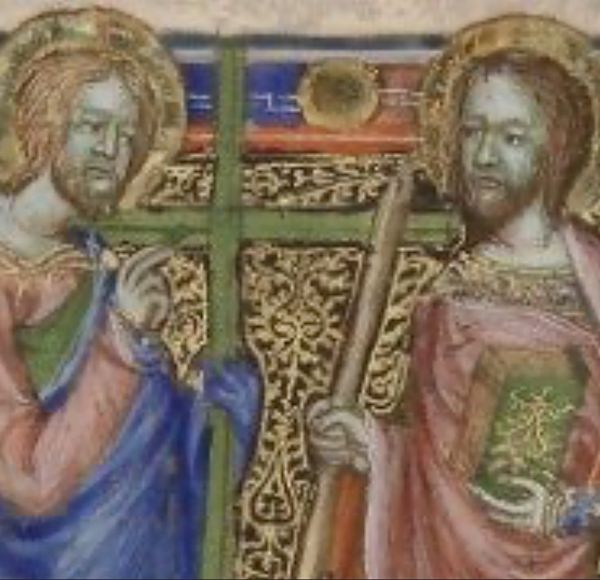In today's passage Jesus stands before two disciples who are still struggling to understand his Person.
Thomas seeks the way and the Lord answers him that he is the Way, the Truth, and the Life.
Philip, perhaps, desires a convincing, glorious manifestation of God, similar to the ancient theophanies.
They have yet to understand that the true and most evident Epiphany of God is Jesus.
The discriminating factor: Faith that makes one see beyond, do the works that Christ Himself does, and even more.
In this context, Francis is the disciple who has always sought the way to achieve perfect union with Jesus, Him in the Father and the Father in Him.
In the Life before Celano we are illustrated:
"In the meantime he studied with all his mind and with all his love to know what way, what path or what desire might be most suitable to achieve a still more perfect union with the Lord God, according to the design and decree of His will.
And this was always his only philosophy, his supreme desire, in which he burned for as long as he lived; and he asked everyone, the simple as well as the wise, the perfect as well as the imperfect, how he could reach the path of truth and arrive at ever higher goals' (FF 480).
In the Regola non bollata, Francis himself writes:
"And let us always build in ourselves a permanent home and dwelling place to Him, who is the Lord God Almighty, Father and Son and Holy Spirit, and who says:
"[...] The words I have spoken to you are Spirit and Life. I am the Way, the Truth and the Life" (FF 61).
But also Clare in her Testament squares the certainty that the soul in Christ is a new creature capable of doing the works that Jesus himself does.
"The Son of God became our Way; and this by word and example our blessed father Francis, a true lover and imitator of Him, showed and taught us" (FF 2824).
And again:
"We must, therefore, dearly beloved sisters, meditate on the immense benefits with which God has filled us, especially those which He has deigned to work among us through His beloved servant, our blessed father Francis, and not only after our conversion, but even when we were still among the vanities of the world" (FF 2825).
Whoever believes in the Lord will become a privileged instrument of His working wonderful things.
«I am the Way, the Truth and the Life» (Jn 14:6)
«He who believes in me, the works that I do he will also do, and do even greater works than these [...]» (Jn 14:12)
Saints Philip and James (Jn 14:6-14)












